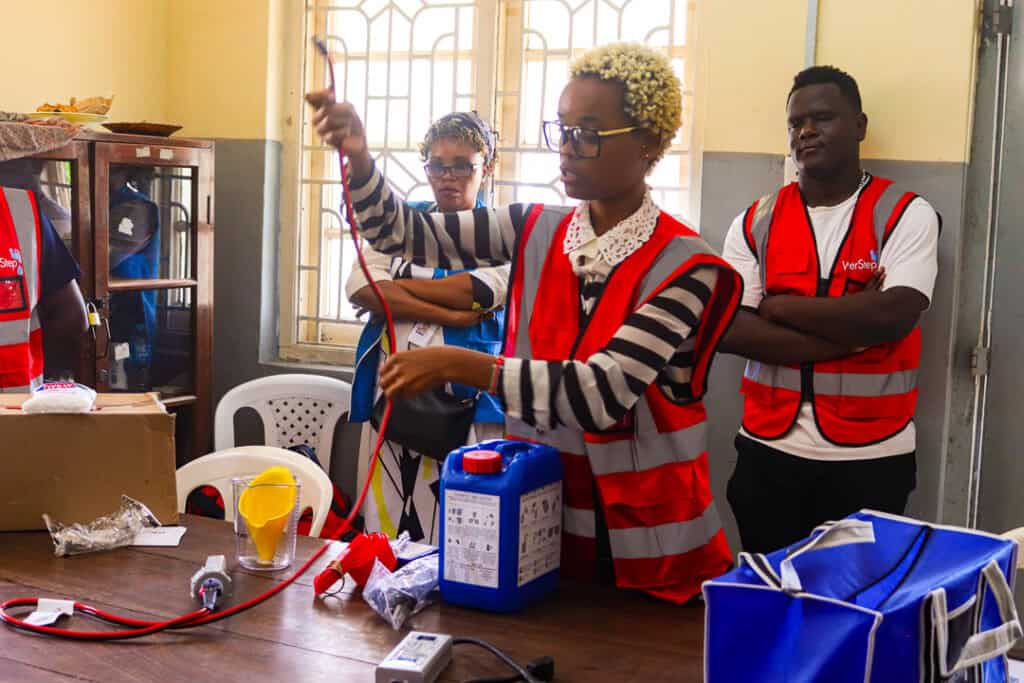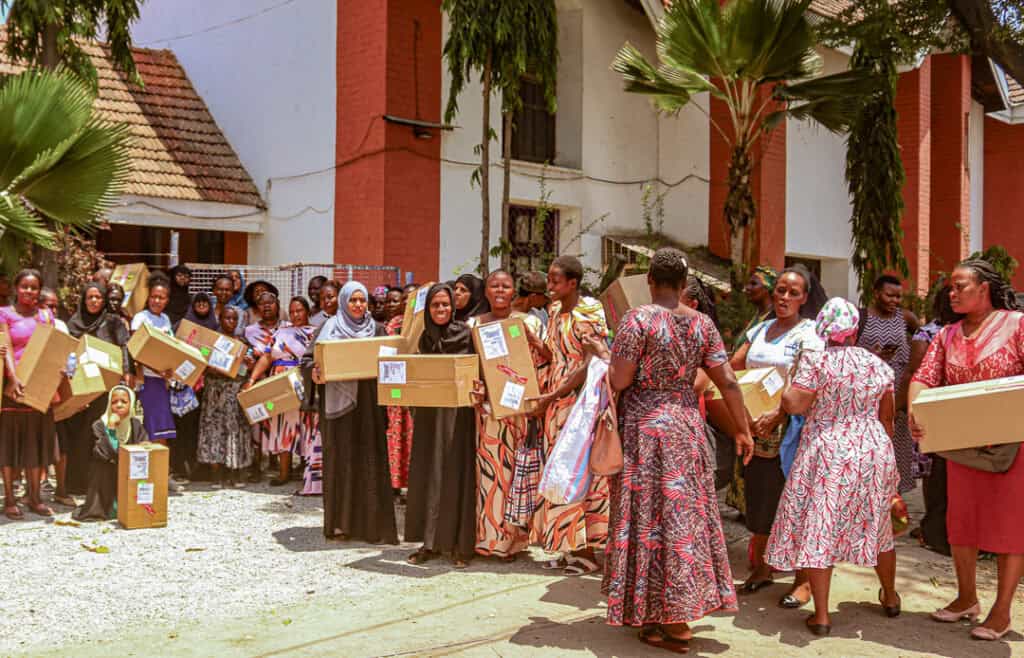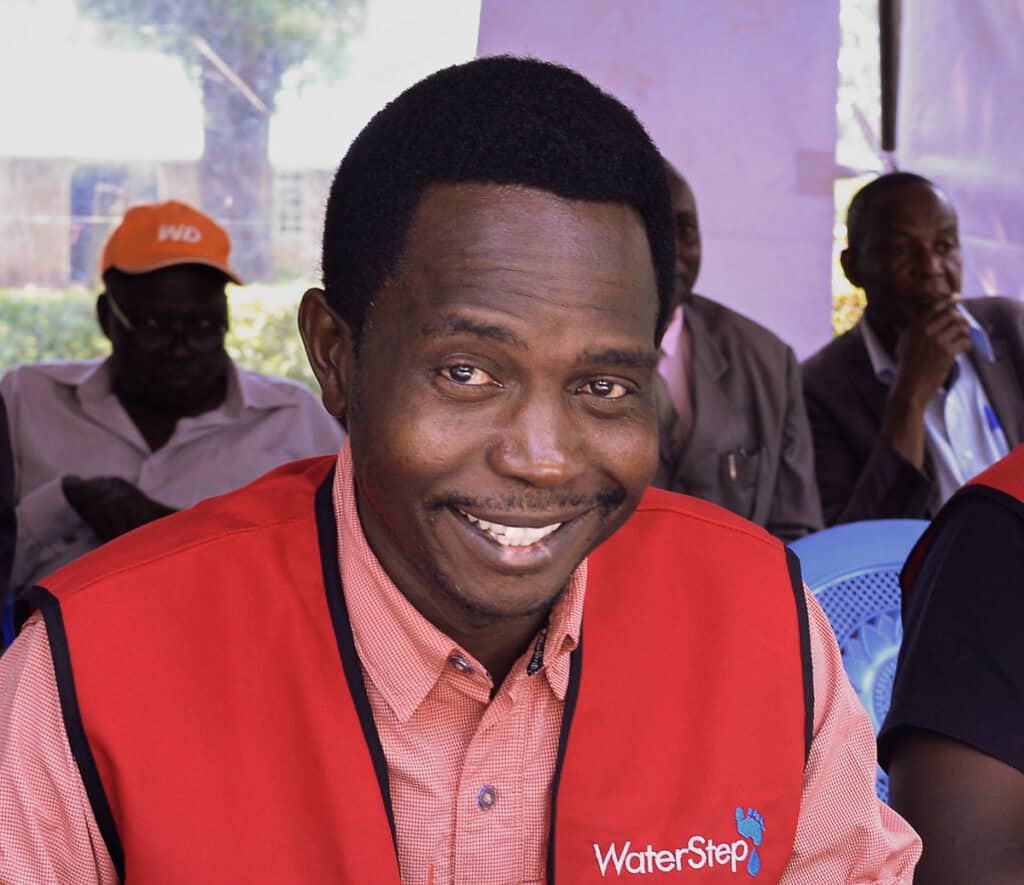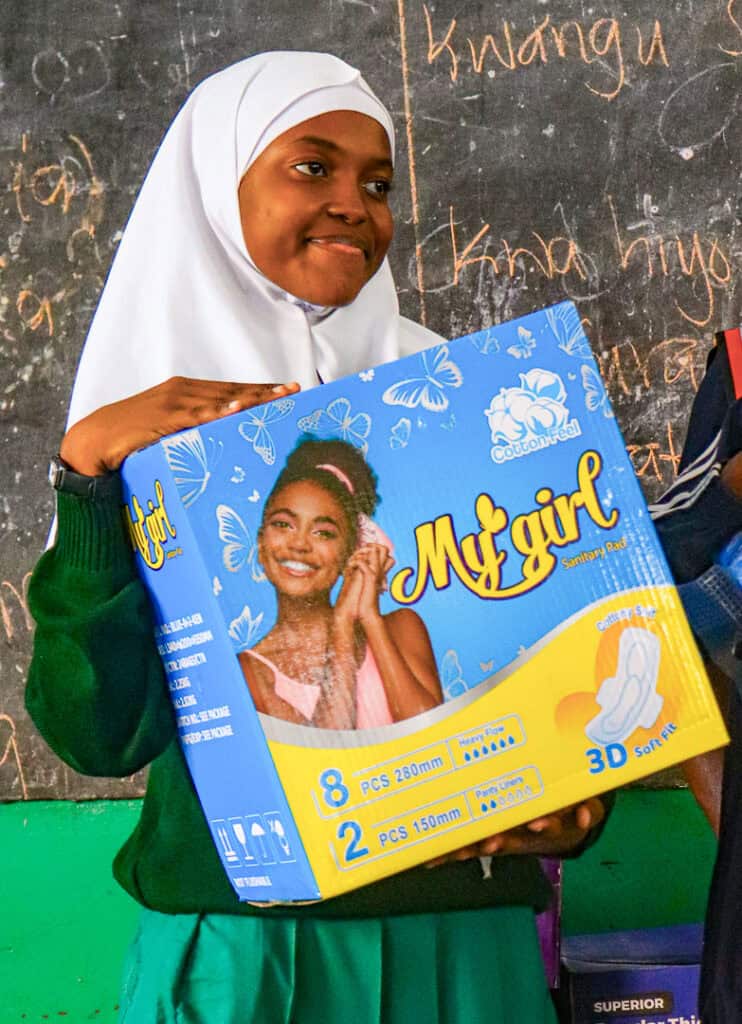50,000 Receive Safe Water and Disinfectant on Kenya’s Mombasa Island
“It was like a miracle.”
– Victoria Oketch
/ By Kristina Goetz
Victoria Oketch was expecting a complicated science experiment with vials of chemicals and hefty, technical equipment as she sat in a training session to learn about safe water and disinfectant on Kenya’s Mombasa Island.
Raphael Wanjala, a Xaverian brother and field consultant who has worked with WaterStep for 11 years, pulled out his signature red duffle bag with all the equipment to make bleach. Victoria thought it curious that all he had was a small plastic can with a screw-top lid, a plastic funnel, a cup of regular table salt and a titanium wand.
That was it.
Victoria was speechless as Raphael spoke.

The simplicity was so remarkable, Victoria couldn’t quite believe it. Raphael used water from their local taps and salt she’d brought and then plugged the wand into the power outlet in the wall. Within a few minutes, she could see what looked like fumes and smell the bleach.
If he’d brought water in, she said, community members might have been suspicious that he’d performed some sort of magic. But they saw the process with their own eyes and poured the salt with their own hands.
“In fact, I was wondering what I was doing in my high school,” she joked, noting how uncomplicated the chemical reaction of electrolysis seemed to be.
“We thought Jesus came because it was like a miracle.”
Victoria was one of 150 people representing 300 community groups – youth groups, women’s empowerment groups, schools, health facilities, and slums – who were trained in WaterStep’s WASHUp program, a 360-degree approach to safe water, sanitation, and hygiene. It’s a comprehensive strategy that addresses everything from water access and water quality to sanitation and hygiene to improve the health and well-being of communities.

Simply put, WaterStep’s WASHUp program, with its patented equipment, allows communities to produce all the safe water they need to drink and all the disinfectant they can use – on site.
Raphael partnered with Shining Hope for Communities – a grassroots movement that catalyzes large-scale transformation in urban slums by providing critical services for all, community advocacy platforms, and education and leadership development for women and girls – to bring the community organizations together for the WASHUp training.
The effort is expected to provide safe water and bleach to at least 50,000 people. In all the years Raphael has worked with WaterStep, this was his largest project to date.
Raphael calls himself an ordinary man who doesn’t like to call attention to himself, but he is proud that WaterStep’s work in Kenya continues to empower people, especially women, to become agents of change in their own communities.

“From what I take as simple and ordinary trainings, people are emerging from there with so much passion and courage to continue what we are doing,” he said. “So, our outreach continues to expand. Our network continues to expand through the people we train in different parts of the country.
“That is a blessing. It comes back to what I was saying, that probably this is what God wants me and the people I’m working with to be – to open other people’s eyes to see what they were not able to see before, empower them and give them a second chance, an opportunity to make others better.”
Island challenges
Accessing safe water on Mombasa Island is a challenge, Victoria said. The slum is so big it’s divided into villages. And since they’re on an island, people live near the shoreline, so the houses are muddy. People use dirty diapers to make their floors, and fishermen discard fish entrails. People suffer from skin rashes and stomach ailments. Cholera and typhoid outbreaks are common.
But it’s not just in the slums.
“In Mombasa County, we have safe water challenges,” Victoria said. “Everywhere. So, it’s affecting the rich, the poor, the middleclass.”
Before the training, Victoria said, many assumed that if the water wasn’t salty, it was safe to drink. Now, she knows that isn’t true. She didn’t realize it could be carrying waterborne diseases like cholera.
“I’m hoping all of Mombasa Island can be safe,” she said.

Teaching in the slums
Hellen Nyangasi is a volunteer with SHOFCO. She goes into communities to empower youth and teach people about sanitation and hygiene. Now, she will teach people how to use WaterStep’s BleachMaker to sanitize their homes, their utensils and their water.
“This machine is going to create a very, very big impact, and it’s going to bring a very big change,” she said.
She’s excited that women will be able to sell small bottles of bleach for 20 shillings. That won’t support a whole family, but it will provide more financial security, she said.
Hellen plans to go to every house in the Kibarani slum where she lives to teach people what she’s learned. She’ll start with neighbors and then gather people at a local church.
“It will change their lives,” she said. “I never thought salt could make such a thing.”